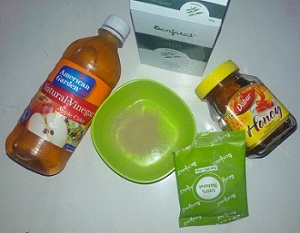- Constant Fatigue: The gut plays a crucial role in nutrient absorption. If your gut isn’t functioning optimally, you may not be absorbing essential nutrients effectively, leading to fatigue and low energy levels.
- Digestive Issues: This includes symptoms like bloating, gas, diarrhea, constipation, or heartburn. Persistent digestive discomfort can indicate an imbalance in gut bacteria or irritation of the gastrointestinal tract.
- Food Intolerances: If you develop sensitivities or intolerances to certain foods, it could be a sign of gut inflammation or a compromised intestinal lining.
- Mood Changes: The gut and brain are closely connected through the gut-brain axis. Imbalances in gut bacteria can influence neurotransmitter production, potentially contributing to mood swings, anxiety, or depression.
- Skin Problems: Conditions like acne, eczema, or rosacea may be linked to gut health issues. Inflammation or imbalances in the gut microbiome can contribute to skin inflammation and various skin conditions.
- Weakened Immune System: A significant portion of the body’s immune system resides in the gut. If your gut health is compromised, it can weaken your immune response, making you more susceptible to infections and illnesses.
- Unexpected Weight Changes: Gut imbalances can affect metabolism, appetite regulation, and fat storage, potentially leading to unexplained weight gain or difficulty losing weight.
Natural Ways to Improve Gut Health:
- Dietary Changes: Incorporate more fiber-rich foods like Lentils, chickpeas, spinach, broccoli, carrots, beans, cauliflower, green peas, fenugreek, okra, eggplant (brinjal), bell peppers, whole grains into your diet. These foods promote the growth of beneficial gut bacteria and support digestive health.
- Probiotics: Consume probiotic-rich foods like Yogurt, Buttermilk, Idli, Dosa Batter, Kanji, Dhokla.Probiotics introduce beneficial bacteria into the gut, helping to restore microbial balance.
- Prebiotics: Include prebiotic foods like garlic, onions, leeks, asparagus, and bananas in your diet. Prebiotics are dietary fibers that nourish the beneficial bacteria in your gut.
- Reduce Stress: Chronic stress can negatively impact gut health. Practice stress-reduction techniques such as meditation, deep breathing exercises, yoga, or spending time in nature.
- Stay Hydrated: Drink plenty of water throughout the day to support digestive function and maintain optimal hydration levels.
- Limit Intake of Processed Foods and Sugar: Highly processed foods and excess sugar can disrupt gut bacteria balance and contribute to inflammation. Opt for whole, unprocessed foods whenever possible.
- Get Adequate Sleep: Aim for seven to eight hours of quality sleep per night. Sleep plays a crucial role in gut health and overall well-being.































